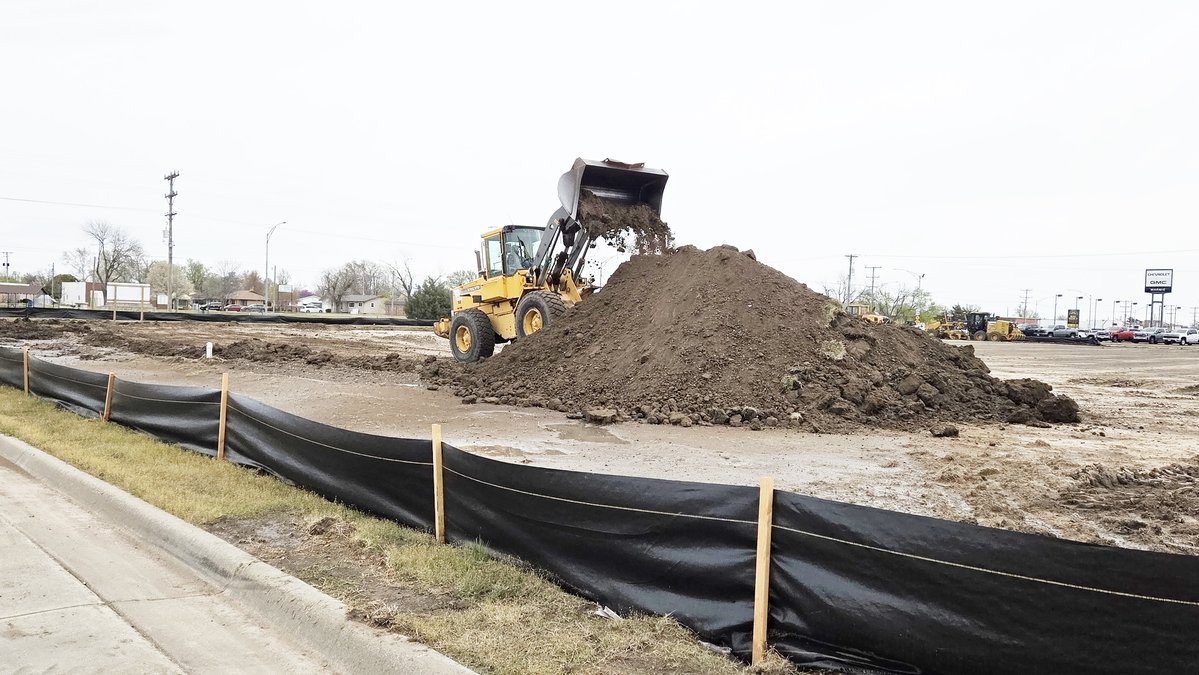At the start of its third season, the apple orchard at the Great Bend Brit Spaugh Zoo is beginning to fill out, but efforts to keep it weed-free haven’t exactly succeeded. Landscape fabric and mulch, it turns out, weren’t enough to keep bindweed and the creeping lawn at bay. That’s why Cottonwood Extension ag agent Alicia Boor requested help from Great Bend High School students during their Community Service Day to help remove the old and try something new.
Students spent the morning raking and removing old mulch, amounting to two truckloads of material taken to the Great Bend compost site. They also removed the weeds and grass that had infiltrated the beds and pierced the fabric. Then, they layered pages of recycled newspaper, dampened it, and added new wood mulch.
The solution came recommended by Barton County Master Gardeners. Boor hopes the results will allow labor to be directed toward other tasks.
While earlier this spring the trees had started to set fruit, they didn’t fare well against recent storms and cold weather. That’s fine, however, Boor said.
“I figure we will give them one more year to get really solidified, and then next year, if we have a good group that will come in and help with the more intensive management the orchard will need,” she said. “I want to make sure we have the support, to guarantee that when the apples are here, they are going to be edible for the community and for Hungry Hearts Soup Kitchen and the Barton County Food Bank.”
Boor is looking into a spray program to keep the trees healthy and also avoid producing wormy apples that aren’t good for anything but mulch.
Early on, Boor stopped at the orchard weekly to water each tree — a task that required hauling 5-gallon buckets because the area did not have irrigation. Last year, she received assistance from local Master Gardeners who have been volunteering hours at the zoo for various projects. A pruning class was held in 2016, with a better-than-expected turnout, where Boor taught attendees basic techniques. Their efforts made maintenance pruning this spring an easy task.
Feed the bears
Sara Hamlin, curator and zoo supervisor, said she and Boor hope having the opportunity to feed the bears will entice others to step up and help with the year-round maintenance the orchard will soon require.
“Volunteers are needed to help throughout the year, and those who do would be rewarded with a special feeding opportunity,” she said.
Quite a few animals at the zoo, from rabbits and porcupines to the bears and soon, the bison, consume both apples and fruitwood for supplemental nutrition, Hamlin said. Bears diets change seasonally, and zookeepers do their best to follow these changes. In the spring, when bears come out of torpor, they consume the leaves and bark on new growth. Hamlin said the bears currently get branches as part of their diet three days a week.
In the fall, as they prepare for winter torpor, they can eat many apples without ill effects. Zookeepers, she added, also provide sweet potatoes and plenty of protein-rich foods during that time.








